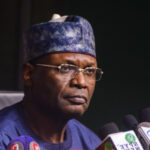
Thirteen state governors have spent N14.84bn to sponsor no fewer than 4,771 persons on religious pilgrimage, investigations by Saturday PUNCH have shown.
The amount was from media reports of governors who deployed state resources to sponsor Muslim and Christian pilgrims between 2022 and 2023.
A breakdown of the amount showed that in 2023, governors spent N2.53bn to sponsor Christian pilgrims and N7.35bn on their Muslim counterparts.
In 2022, N1.54bn was expended on the sponsorship of Christian pilgrims and N3.403bn for Muslims sponsored on Hajj.
The amount spent on the exercise was not stated by the states, however, our correspondents multiplied the number of the beneficiaries by the price fixed by the commission.
Hajj pilgrimage in 2022 was fixed at N2.44m for those in the North and N2.49m for those in the South. The price fixed for Christian pilgrims for 2022 was not accessible but our correspondents learnt it was around N1m.
Although some governors openly declared that they had stopped sponsoring pilgrims, findings show that many of them still spent state resources to sponsor some citizens.
It was gathered that five states funded Christian pilgrims in 2023; Imo sponsored 1,000; Enugu, 300; Adamawa, 120; Lagos, 170, and Borno, 101.
In 2023, Adamawa paid for all its 2,574 Muslim pilgrims, while Edo State sponsored 40 for Hajj.
Also, Kano State Governor, Abba Yusuf, gave N65m to 6,166 hajj pilgrims from the state, while the Ogun State Government provided logistics support for 2023 Muslim Pilgrims.
In 2022, seven states funded Christians for pilgrimage. Enugu sponsored 300; Delta, 312; Taraba, 163; Bauchi, 199; Nasarawa, 117; Plateau, 420; and Gombe, 29.
In 2022, two states Taraba and Zamfara sent citizens on pilgrimage. Taraba sent 100 and Zamfara 1,400 pilgrims.
Apart from this, some state governors provided support to the pilgrims in their state. For instance, the Lagos State Government in 2022 disbursed over $1.2m to pay the Basic Travel Allowance for 1,562 Muslim pilgrims.
Meanwhile, most of the states that deployed resources for pilgrimage had N2.44tn domestic debt.
Lagos was the most indebted, with about N812.4bn as of March 31, 2023. It was followed by Delta’s N421.78bn. Imo owes N202.55bn; Plateau, N148.12bn; Bauchi, N144.54bn; and Gombe N134.9bn; Adamawa, N131bn; Zamfara, N98.05bn; Borno, N94.82bn; Enugu, N92.68bn; Taraba, N87.96bn; and Nasarawa, N71.44bn.
In his reaction, the Executive Director, Civil Society Legislative Advocacy Centre, Musa Rafsanjani, described state sponsorship of pilgrimage as a form of money laundering, which he said must be stopped.
In a telephone interview with one of our correspondents, he queried why the government was keen to sponsor people while critical infrastructure was in dire need of funding.
He stated, “Government has no business sponsoring pilgrimage. What they should do is that since their citizens are traveling to another country, make the process seamless and travel plans easy. Paying people to go on pilgrimage is another form of money laundering.
“Why should the government take people who can’t afford it, when other critical sectors like education, health, and roads require funding? They should also not be paying the fees to individuals. They are not paying people to go on pilgrimage for the sake of worshipping, and even if it is for that purpose, you are going there because you believe in God and you are going there for worship.
“It should not be the business of anybody. If you can’t afford it, plan your finances in a better way. I restate the fact that anything outside ensuring the safety of citizens in a foreign country, the government has nothing to do with pilgrimage.”
The National Coordinator, Advocate for People’s Rights and Justice, Giwa Victor, said according to the constitution, Nigeria is a secular country, adding that by funding pilgrims, states were getting involved in religious activities.
He stated, “Nigeria is a secular country and so no state should be sponsoring religious activities. Pilgrimage is an activity in Christianity and Islam. Spending a huge amount of money on this calls to question that section of the constitution. To make matters worse, some of the states might owe salaries. Religious activities do not have an economic effect on governance. Pilgrimage is a private adventure. Anybody who wants to be spiritual should invest in their spirituality.”
The Executive Director, United Global Resolve for Peace, Olaseni Shalom, said considering the country’s economic situation, funding pilgrimage when states could not afford to pay workers was not only irresponsible but also shows misplaced priorities and a lack of touch with reality.
He added, “I urge the new administration to properly look into this wasteful spending. As necessary as the fuel subsidy removal, so is the necessity for the removal of the pilgrimage subsidy.
“Citizens that want to go for pilgrimage must be able to afford it and the state and federal government must also make the country appealing and attractive for tourists to visit and attract investment and investors.”
Also, the Chairman, Centre for Anti-corruption and Open Leadership, Debo Adeniran, asked the government to stop funding pilgrimage and invest more in basic amenities for citizens.
He said, “This is a misplaced priority. Religion is not an item under things that can promote livelihood. Those things that are essential include education, food security, health care, and infrastructure. These are the things the government should be investing in. Religion does not come in at any stage at all, and that is why a tourist visa is given to them. Anyone who wants to go on tourism should be prepared to pay for it from their pocket.”





